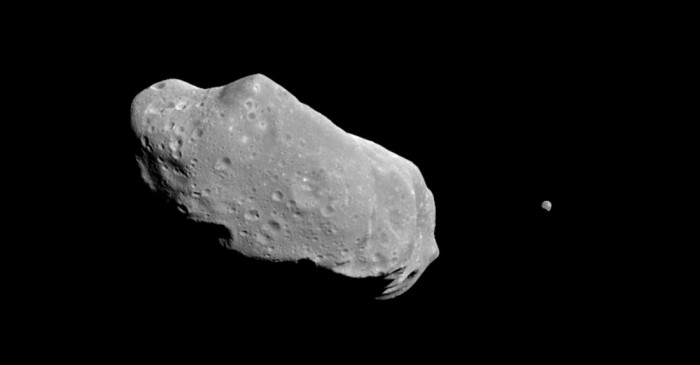Luxembourg Wants to Lead the Way in Asteroid Mining
For a small country, it’s got big ambitions. Yesterday, Luxembourg’s minister of the economy announced that it will explore asteroid mining as a “key high-tech sector” for its economy and seek to position itself as “a European hub in the exploration and use of space resources.”
Ever since Planetary Resources and Deep Space Industries—two companies dedicated to building asteroid-mining operations—came on the scene a few years ago, interest in asteroid mining has grown rapidly. State-run space agencies were out in front of the commercial interest, and NASA, JAXA, and ESA have all launched or are planning to launch trips to asteroids (or a comet, in ESA’s case). Japan even succeeded in returning bits of asteroid Itokawa to Earth, sort of.
It would be tempting to call the groundswell a “gold rush,” but doing so glosses over a rather large detail: it hasn’t happened yet. While breathless reports of single asteroids worth trillions of dollars ping around the Internet, no one has yet made a cent as an asteroid miner and they don't figure to anytime soon.
The state-run missions prove that technically, yes, it can be done. But launching a vehicle out of Earth’s gravity well, getting it safely in orbit around an asteroid, landing, and bringing back even a few tiny specks of material has proved quite difficult. Making the whole process profitable is, for the foreseeable future, outlandish.

Some people have said Luxembourg’s move displays “tremendous foresight,” and that it will be able to harness its experience with the European Space Agency’s mission to comet 67p in 2014 to propel the development of this futuristic industry.
Maybe. But with a thicket of legal questions and technical hurdles looming and only the smallest bits of progress to report thus far, itty-bitty Luxembourg might want to look somewhere besides the heavens for its big economic plans.
Sources: (The Economist, NPR, NASA, New Scientist)
Keep Reading
Most Popular
Large language models can do jaw-dropping things. But nobody knows exactly why.
And that's a problem. Figuring it out is one of the biggest scientific puzzles of our time and a crucial step towards controlling more powerful future models.
How scientists traced a mysterious covid case back to six toilets
When wastewater surveillance turns into a hunt for a single infected individual, the ethics get tricky.
The problem with plug-in hybrids? Their drivers.
Plug-in hybrids are often sold as a transition to EVs, but new data from Europe shows we’re still underestimating the emissions they produce.
Google DeepMind’s new generative model makes Super Mario–like games from scratch
Genie learns how to control games by watching hours and hours of video. It could help train next-gen robots too.
Stay connected
Get the latest updates from
MIT Technology Review
Discover special offers, top stories, upcoming events, and more.